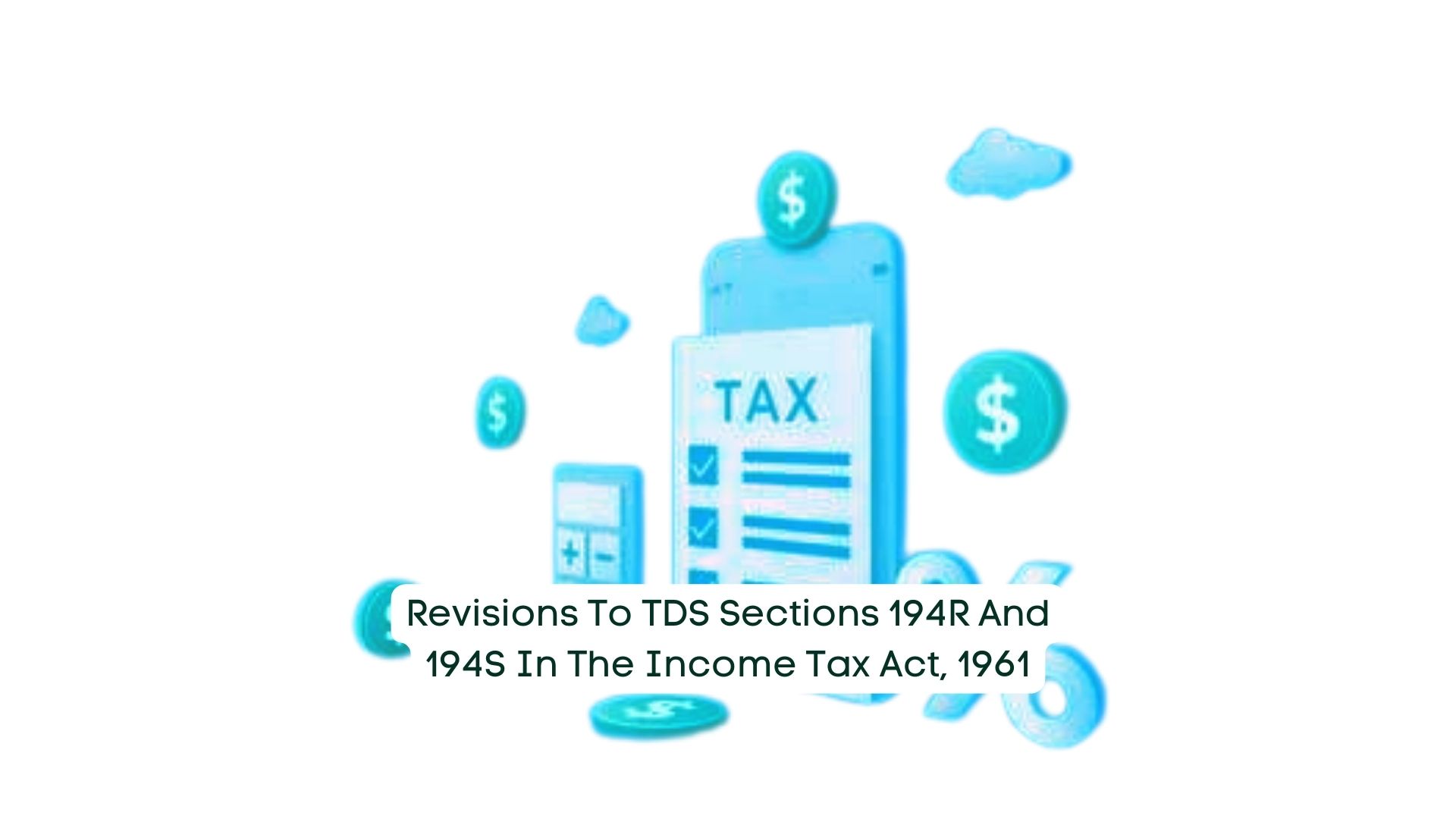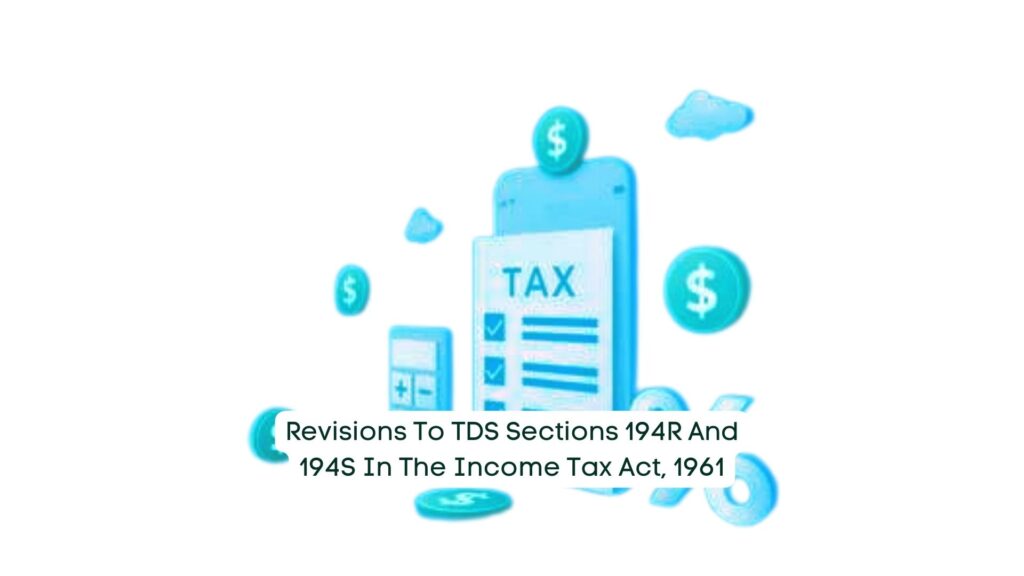
14 Mar Revisions to TDS Sections 194R and 194S in the Income Tax Act, 1961

Section 194R, introduced as part of the Finance Act 2022, addresses the taxation of benefits or perks associated with business or professional activities and the subsequent deduction of taxes. It pertains to instances where businesses provide distributors, channel partners, or agents with various benefits or incentives to promote business growth. These benefits may include travel deals, gift vouchers, or other privileges, and are subject to taxation under Section 28 (iv) of the Income Tax Act, 1961.
Purpose of Section 194R
The introduction of Section 194R aims to curb potential tax evasion in businesses by ensuring the taxation of perks or benefits provided to distributors or channel partners. To comply with this provision, businesses are required to withhold TDS on such benefits, whether they are monetary or non-monetary in nature. This measure broadens the taxpayer base and closes potential tax loopholes.
Scope of Section 194R
Under Section 194R, a TDS rate of 10% applies to residents receiving benefits or privileges, subject to certain conditions. However, if the total value of benefits provided does not exceed Rs 20,000 within the financial year, or if the total sales do not surpass specified thresholds, TDS may not be applicable.
Nexus with Business or Profession – Section 194R
Section 194R applies to any person granting benefits or privileges to another resident arising from business or professional activities. This includes both monetary and non-monetary benefits aimed at promoting business interests.
Applicability of Section 194R
Section 194R is applicable when businesses, firms, or professionals provide benefits exceeding Rs 20,000 to individuals during the financial year. However, certain exceptions apply, such as benefits provided to employees, non-residents, or cases where there is no existing business relationship.
Understanding Section 194S
Introduced in the 2022 budget, Section 194S addresses the implementation of TDS on the transfer of virtual digital assets (VDAs) and cryptocurrencies. It aims to regulate and monitor transactions involving VDAs, with a TDS rate of 1% applicable to transfers exceeding Rs. 10,000.
Who Should Deduct TDS under Section 194S?
Various entities, including buyers, sellers, exchanges, and brokers, may be responsible for deducting TDS under Section 194S, depending on the nature of the transaction. The TDS rates and filing requirements differ based on the type of transaction and the parties involved.
Conclusion
Understanding the provisions of Sections 194R and 194S is crucial for both taxpayers and businesses involved in digital asset transactions. Compliance with these regulations ensures adherence to tax laws and contributes to a transparent and responsible financial ecosystem.


No Comments